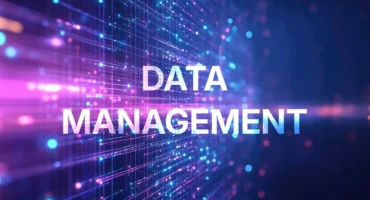
Seth Rao
CEO at FirstEigen
Why Data Monitoring and Capture are Important for Business Success: An Essential Guide.
Running a business requires a lot of work and attention, but you can make your job a lot easier with data monitoring. With data monitoring, there are fewer risks of errors and incorrect analytics. On top of that, it can help your bottom line. If you would like to know more about data monitoring, keep reading.
It Reduces Mistakes
As data gets moved from one place to another, the risk of mistakes is high. This problem is especially common if you store your information in a cloud or similar storage facility. Think of it like a game of telephone: just one wrong word can drastically change the result; but when a business is involved, it can affect your bottom line.
If any information is changed, it can skew the analytics reports. These reports are used to help determine how the company is doing and where the company needs to improve. However, if you don’t have the right information, you can’t make the right choices for your business and customers.
With data monitoring, however, the information is automatically checked to ensure it is correct every step of the way. If a discrepancy shows up, the information is flagged so someone can review it and make any necessary changes. As a result, you can better trust and rely on your analytics and reports.
It Saves You Time and Money
Without monitoring, you’ll need employees to double-check the information for errors before it is sent to the analytics team. With so much data, this can take a lot of time: time that could be better spent assisting customers, producing products, etc.
Data monitoring also saves you time and money in the long run by giving you a more accurate snapshot of your business. If your analytics are incorrect, you may think you need to fix something that actually isn’t an issue. Meanwhile, you may ignore real problems that were missed because of the incorrect information.
It Helps You Connect Better With Customers
The more accurate the information, the better you can connect with customers. Data monitoring improves connections in many ways. First, correct data monitoring shows you who your customers are: their age, socio-economic status, gender, and much more demographic information. All this can be used to better target your customer base, so you don’t waste money marketing to people who won’t be interested.
In addition, correct information shows you where you may need improvements. For example, if your analytics show that you get a lot of new customers, but those same customers rarely come back, you can focus on customer retention instead of attracting new customers.
It Shows You Who Accessed What
Typically, one employee doesn’t need to access every bit of information in the system. For example, the receptionist at a tax preparing company doesn’t need access to the financial information of customers. The accountant processing the taxes, however, does need that information. With data monitoring, you can ensure no one is accessing data they shouldn’t.
The ability to track who is accessing what can also help reduce mistakes; because if everyone is accessing every part of the system, more changes can be made, and more changes leaves room for more mistakes. If this does happen, you can also use data monitoring to retrace the data’s steps to see who accessed it and made the changes.
Data monitoring is a helpful tool for any business. It saves you money and time, but it also prevents unwanted mistakes from confusing your analytics. If you would like to know more, or if you are ready for data management, contact us at FirstEigen today.
FAQs
Data is important to business because it provides insights that drive informed decision-making, optimize operations, and identify growth opportunities. By analyzing data, businesses can better understand customer behavior, improve efficiency, and stay competitive in the market.
Data capture is important because it ensures accurate and timely collection of information, which is crucial for making strategic business decisions. Effective data capture enables businesses to monitor trends, track performance, and enhance customer experiences, leading to overall success.
Discover How Fortune 500 Companies Use DataBuck to Cut Data Validation Costs by 50%
Recent Posts
Get Started!



